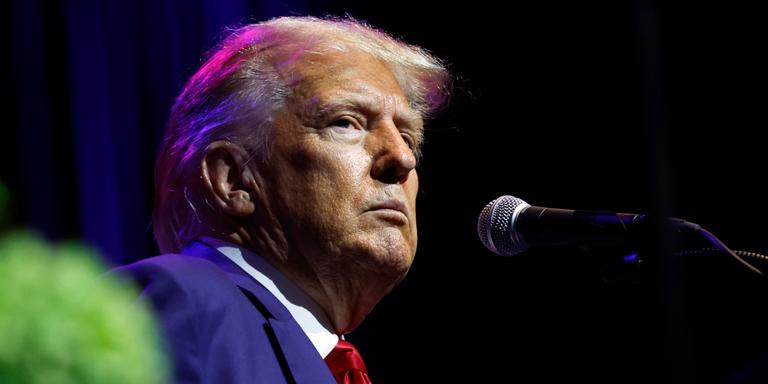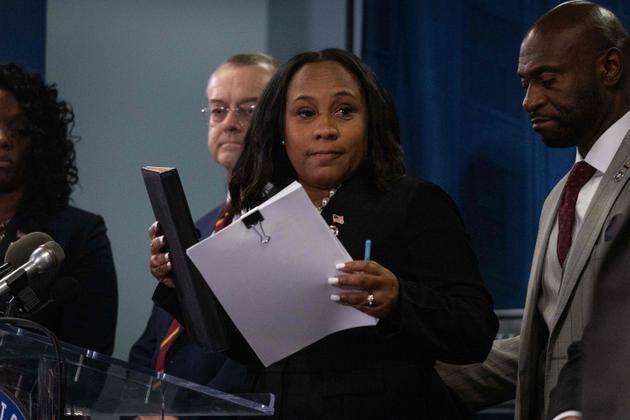


The mechanics of Donald Trump's 'entreprise' laid bare
Long ReadA grand jury in Georgia has indicted the former president and 18 people from his inner circle for attempting to overturn the result of the 2020 presidential election.
Donald Trump was indicted on the evening of Monday, August 14, by a Georgia grand jury, for trying to overturn the result of the 2020 presidential election. This charge complements the one made on August 1 in Washington by Special Counsel Jack Smith, who is prosecuting Trump for his attempted coup during the assault on the Capitol on January 6, 2021. More than two and a half years after the fact, American courts are addressing the real issues.
For a long time, Trump was prosecuted for matters that were revealing of his behavior but might have seemed secondary: his indictment this winter by a Manhattan prosecutor for illegally buying the silence of a prostitute, Stormy Daniels, in 2016, in violation of election law; his federal indictment for taking classified documents to his Mar-a-Lago estate in Florida after his defeat.
From now on, justice is at the heart of the reactor, with two indictments that describe the reality of Trumpism: an attempted coup d'état (in Smith's federal indictment), carried out by a quasi-mafia group, a "criminal enterprise." This is also the peculiarity of the charge brought in Georgia by prosecutor Fani Willis. She used the Georgian version of the Racketeer Influenced and Corrupt Organizations Act (RICO). This 1970 federal law was used to fight the mafia and organized crime. And it's a "criminal enterprise" that the prosecutor described. "RICO is a tool that allows a prosecutor's office and law enforcement to tell the whole story," Willis explained shortly before midnight on Monday, at a brief press conference.

"Defendant Donald Trump lost the US presidential election on November 3, 2020. One of the states he lost was Georgia. Trump and the other defendants refused to accept that Trump lost, and they knowingly and willingly joined a conspiracy to unlawfully alter the outcome of the election," began the indictment, which goes on to describe "the enterprise."
Thirteen charges
Trump is being prosecuted along with 18 co-defendants, including his former adviser Rudolph Giuliani, the former mayor of New York, who appears to have been the mastermind of the conspiracy, and former White House chief of staff Mark Meadows. The former president faces 13 charges out of a total of 41 for the group as a whole.
The investigation was wide-ranging and revealed some 30 additional accomplices, who were not charged, likely because of their cooperation with the investigators. The maximum sentence is 20 years' imprisonment. These charges also carry a minimum sentence of five years, unlike the other trials for which Trump has been summoned.
You have 73.63% of this article left to read. The rest is for subscribers only.
